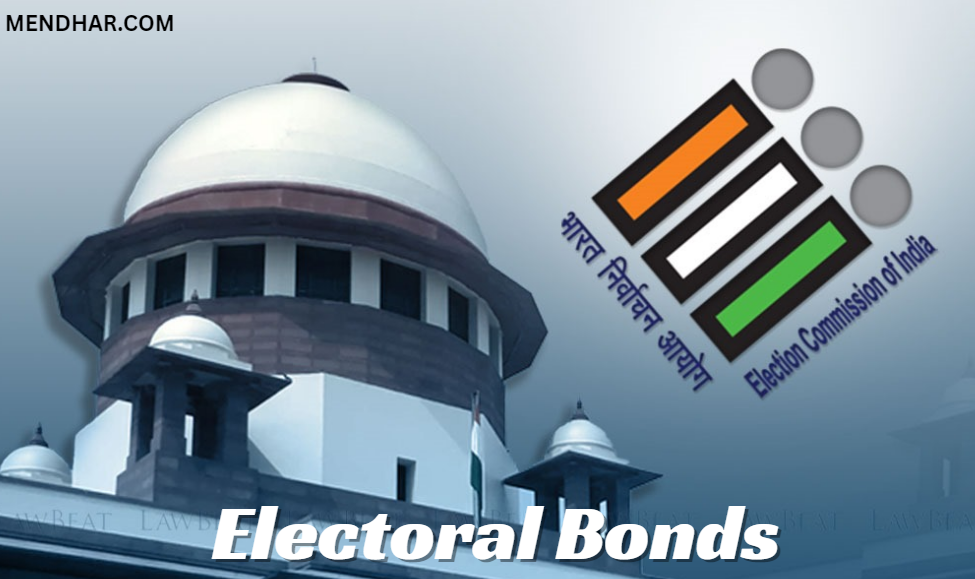Table of Contents
ToggleThe Mystery of Electoral Bonds: A Closer Look

Introduction: Decoding Electoral Bonds
In the landscape of politics, certain terms often trigger curiosity and intrigue. One such term that has been buzzing around in recent years is “electoral bonds.” But what exactly are electoral bonds, and why are they significant? Let’s embark on a journey to unravel the mystery behind these financial instruments that have stirred both praise and skepticism.
Electoral Bonds: A Brief history
Electoral bonds represent a unique mechanism introduced in India to bring transparency and accountability to political funding. Essentially, they are a form of monetary instrument used for making donations to political parties. Unlike traditional methods where donations are made openly, electoral bonds offer a layer of anonymity to the donor.
How Electoral Bonds Work:
Imagine you’re a citizen eager to support a political party financially, but you prefer to maintain your privacy. Here’s where electoral bonds come into play. You can purchase these bonds from authorized banks using your legitimate funds. These bonds then become a mode of donation to the political party of your choice.
The key feature of electoral bonds is anonymity. Neither the donor’s identity nor the recipient party is disclosed during the transaction. This secrecy aims to shield donors from potential repercussions while ensuring a level playing field in political funding.
The Debate Surrounding Electoral Bonds:
While electoral bonds were introduced with the noble intention of fostering transparency, they have been subject to intense debate and scrutiny. Critics argue that the anonymity provided by electoral bonds could pave the way for unaccounted money to enter the political sphere, potentially compromising the democratic process.
Moreover, concerns have been raised regarding the lack of disclosure regarding the sources of funding for political parties. Transparency advocates argue that without knowing the identities of donors, it becomes challenging to trace the origins of political funding, raising questions about the integrity of the electoral process.

The Legal Framework and Controversies:
Electoral bonds were introduced through amendments to the Finance Act of 2017 in India. Since their inception, they have been embroiled in legal battles and controversies. Various petitions have been filed challenging the constitutional validity of electoral bonds, citing concerns over transparency and accountability.
Despite the legal challenges, electoral bonds continue to be a part of India’s political financing landscape, with proponents advocating for their role in facilitating legitimate and transparent funding for political parties.
The Way Forward:
As we navigate the complexities surrounding electoral bonds, it becomes evident that striking a balance between transparency and privacy is crucial. While anonymity can protect donors from potential backlash, it should not come at the cost of undermining the democratic process.
Moving forward, there is a need for robust mechanisms to ensure accountability in political funding. Transparency measures, coupled with stringent regulations, can help mitigate the risks associated with electoral bonds while upholding the principles of democracy.
Conclusion: Shedding Light on Electoral Bonds
In conclusion, electoral bonds represent a novel approach to political funding, aimed at balancing privacy concerns with the need for transparency. While they have sparked debates and controversies, electoral bonds remain an integral part of the political financing landscape in India.
As we continue to explore ways to strengthen democratic institutions, it is imperative to address the challenges posed by electoral bonds while leveraging their potential to foster legitimate and accountable political funding. Only then can we ensure that the voices of the people resonate loud and clear in the corridors of power.
So, the next time you hear about electoral bonds, remember that they are not just financial instruments but symbols of the delicate balance between transparency and privacy in the realm of politics.
Electoral Bonds: Frequently Asked Questions (FAQ)
What are electoral bonds?
- Electoral bonds are a form of financial instrument used for making donations to political parties in India.
How do electoral bonds work?
- Citizens can purchase electoral bonds from authorized banks using legitimate funds. These bonds are then donated to political parties of their choice, maintaining anonymity for both the donor and the recipient party.
Why were electoral bonds introduced?
- Electoral bonds were introduced to promote transparency and accountability in political funding while safeguarding the privacy of donors.
What is the controversy surrounding electoral bonds?
- Critics argue that the anonymity provided by electoral bonds may lead to unaccounted money entering politics, compromising the democratic process. Concerns have also been raised about the lack of disclosure regarding the sources of funding for political parties.
What is the legal framework for electoral bonds?
- Electoral bonds were introduced through amendments to the Finance Act of 2017 in India. However, their constitutional validity has been challenged in court.
Are electoral bonds still in use despite controversies?
- Yes, electoral bonds continue to be a part of India’s political financing landscape, with proponents advocating for their role in facilitating legitimate and transparent funding for political parties.
What measures are needed to address concerns about electoral bonds?
- There is a need for robust mechanisms to ensure accountability in political funding. Transparency measures and stringent regulations can help mitigate risks associated with electoral bonds while upholding democratic principles.
Can electoral bonds strike a balance between transparency and privacy?
- With appropriate regulations and transparency measures, electoral bonds have the potential to balance privacy concerns with the need for transparency in political funding.
What is the significance of electoral bonds in the democratic process?
- Electoral bonds represent a delicate balance between transparency and privacy in political financing, playing a crucial role in strengthening democratic institutions.



Pingback: ECI Announced Lok Sabha elections in Jammu & Kashmir -
Pingback: SO 176: Empowering Pahari Speaking Peoples via ST Reservation -
Pingback: Essential Tips for Handling and Operating an EVM: A Comprehensive Guide -